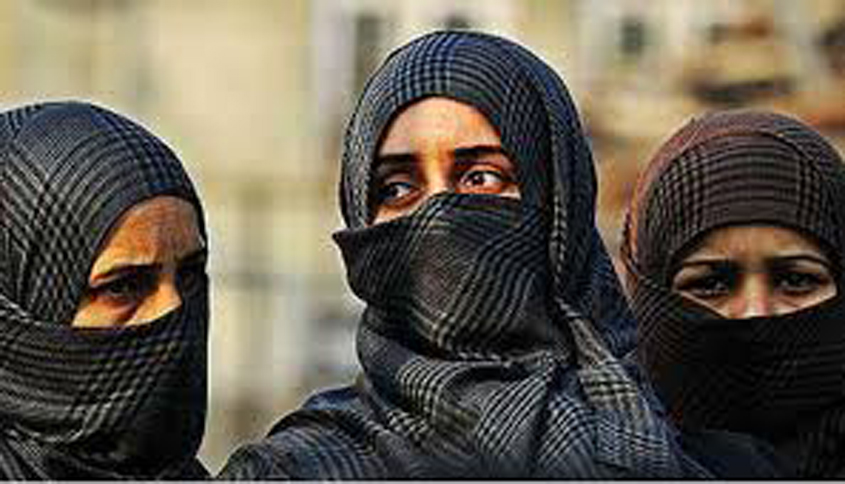A majority of Muslim women have welcomed the Supreme Court’s verdict of striking down the contentious practice of instant triple talaq—under which a Muslim man could divorce his wife by uttering the word “talaq” thrice—but have also expressed doubts about the implementation of the order. While the mood among Muslim youth is mostly that of subtle, cautious optimism, a few of them have voiced reservations about the issue as having been “politicised” because of the court’s “intervention in the community’s religious matters”.
“The practice of instant triple talaq was mostly followed inside the homes of the illiterate or the uneducated. I support the verdict precisely for the reason that it will help these women to take matters into their hands legally. Some helpers at home have been humiliated and threatened by their husbands on account of abandoning them, just like that. Women should not be living in fear of being divorced in such a manner,” Hena Jafri, a Pune-based journalist, said.
Reiterating the same, positive sentiment, Zainab Ahmed, a journalist, said that she supports the striking down of instant triple talaq, for the practice, despite having found absolutely no mention in the Quran, gave the “bigots” and the mullahs an upper hand over women by allowing them to continue with the practice in the name of Shariah.
“The verdict is just a step on the road, and other oppressive practices like polygamy and nikah halala also need to be brought down,” she said.
Instant triple talaq, also known as Talaq-e-biddat, is pronounced by the husband thrice in a sitting, or through phone, or in written in a talaqnama. The divorce is considered immediate and irrevocable, even if the man wishes to reconcile later. The only way for him to get back to his wife is through a nikah halala, which requires the woman to get remarried and consummate the second marriage, only to seek divorce, observe a three-month iddat period and return to her first husband. During the course, the legality of the divorce is not sought or even questioned.
According to Saman Fatami, a doctor, the procedure of instant triple talaq was considered valid only during the initial period of Islam. But later several Islamic institutions simply adopted the practice to even ordinary cases of marital dispute, she added.
“The institutions that encouraged and misused the Islamic law are guilty of avoiding over 90% of Muslim divorces. Thereby, this verdict is a welcome step as it will help stop the misuse of the Islamic law,” Saman added.
However, a few Muslim women expressed mild resentment while questioning the “political agenda” behind the judgment.
“When matters related to one’s religion are confronted, people try to protect their religion above anything else. Instant triple talaq is a case of abject misuse of the Islamic law, but aren’t laws flouted everywhere? The practice of dowry still continues. A specific community, I believe, shouldn’t have been singled out when such practices are equally rampant in other communities too,” Fatima (name changed), said.
She added that while the move is a step towards bringing gender justice for Muslim women, the impression that Islam doesn’t give women rights is fundamentally flawed.
“Women, too, can initiate divorce by the practice of Khula. It is just that women are not much aware of the rights the Islamic law has given them,” she asserted. According to Jafri, the number of women using Khula to divorce their husbands is not any less than that used by men (triple talaq) to do the same.
Zara (name changed) said that a sudden interference in the age-old practice cannot be accepted suddenly and whole-heartedly.
“The move is a welcome step for it addresses the concern of women who have been wronged. But there is disappointment among some Muslims of how this 1,400-year-old practice has come to be suddenly targeted in the past two years. Cases like these have been happening since decades,” she said.
All the Muslim women this newspaper talked to voiced apprehensions on whether the order will be adhered to or not.
“This is just a verdict, not legislation. So I am doubtful of Muslim men strictly following it, or even taking it seriously,” said Fatima, adding that the verdict may not be a deterrent for men who divorce their wives through such a practice.
Talking to The Sunday Guardian, Rebecca John, a senior Supreme Court lawyer, strongly dismissed the alleged politicisation of the verdict.
“Only and only the Supreme Court could have given this verdict. It needs to be understood that no political party could have brought out this judgment. It has been passed because the women who were wronged challenged the Supreme Court and the Supreme Court rightfully delivered justice,” she said.
“When you look at the gender-based unjust laws across the country, every religion follows practices that are unjust to women. So this allegation of the court or political parties looking down upon a particular religion is completely bizarre,” Rebecca John added. She further added that the verdict has not gone the full distance when it comes to addressing other social problems among Muslims, but said that the verdict is a good, first step towards achieving the same.

